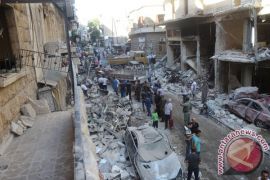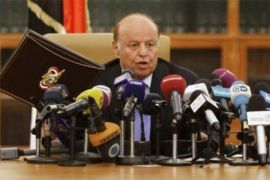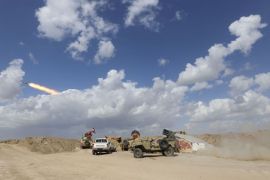Air strikes had stopped Islamic State`s advance in Iraq, but they would not be "the end-all solution", General Ray Odierno, who commanded U.S. troops in Iraq from 2008 to 2010, said.Wiesbaden, Germany (ANTARA News/Reuters) - Air strikes alone will not be enough to destroy Islamic State fighters in Iraq and Syria, and Baghdad will need training to rebuild ground forces capable of "going after them and rooting them out," the U.S. Army Chief of Staff said on Wednesday.
Three years after U.S. forces pulled out of Iraq, President Barack Obama has ordered air strikes to halt Islamic State fighters who made rapid advances earlier this year as Iraqi forces melted away.
General Ray Odierno, who commanded U.S. troops in Iraq from 2008 to 2010, said it was the sectarian bias of Iraqs army rather than any failings in U.S. training that had led Iraqi forces to collapse against the Islamic State onslaught.
Describing what had happened in Iraq as "very disappointing", he suggested it might have been better if U.S.
forces had stayed in Iraq as "we would have been able to keep a closer eye on what was going on."
The United States is now working to build a broad international coalition to take on Islamic State in Iraq.
Air strikes had stopped Islamic States advance in Iraq, but they would not be "the end-all solution", Odierno told a small group of reporters in Wiesbaden, Germany, where he was attending the Conference of European Armies.
"Youve got to have ground forces that are capable of going after them and rooting them out in order to defeat and destroy them, so that is why the training, our ability to have advisers and train them (Iraqis) to do this is incredibly important," he said.
Obama said last week he had authorised U.S. air strikes for the first time in Syria, where Islamic State fighters have also established themselves during a three-year civil war. "We cannot have a safe haven (for Islamic State) in Syria," Odierno said.
Fighting Islamic State in Syria is more complex because the U.S. and its allies are hostile to Syrian President Bashar al-Assad. Intervening in Syria without the governments permission could put U.S. planes at risk from Syrian air defences.
"They (Islamic State) are a threat regionally and I believe they are a potential future threat both to Europe and the United States, so it is important for us to deal with that threat now with our international partners," he said.
General Martin Dempsey, chairman of the U.S. militarys Joint Chiefs of Staff, raised the possibility on Tuesday that American troops might need to take on a larger role in Iraqs ground war against Islamic State militants, but the White House stressed they would not deploy on a combat mission.
Asked about Dempseys comments, Odierno said: "We are constantly conducting assessments and we will provide the best military advice to the president in order to achieve the objectives he has set forth."
The United States would welcome help from other countries to train Iraqi security forces, including Kurdish peshmerga fighters, he said. "There seem to be some countries that are very interested in doing that," he added.
He said it was unclear whether U.S. special forces or army would be involved in training moderate Syrian rebels in Saudi Arabia, but said it was possible.
Odierno denied that the crushing defeat of Iraqs armed forces at the hands of Islamic State was due to inadequate training by the United States.
"Over time, Prime Minister (Nuri al-) Maliki developed sectarian forces that were no longer truly accepted by all the Iraqi people. He put leaders in place that were not qualified ... It wasnt that they werent trained to fight - they refused to fight at all," he said.
Under Maliki, the Iraqi armed forces came to be dominated by Iraqs Shiite majority, alienating the Sunni minority.
Odierno said that future U.S. partnership with Iraqi armed forces would depend on them being more representative of Iraqis.
"As we look to the future, our ability to partner with them will be based on those that are truly representative of Iraq as a whole," he said.(*)
Editor: Heru Purwanto
Copyright © ANTARA 2014




